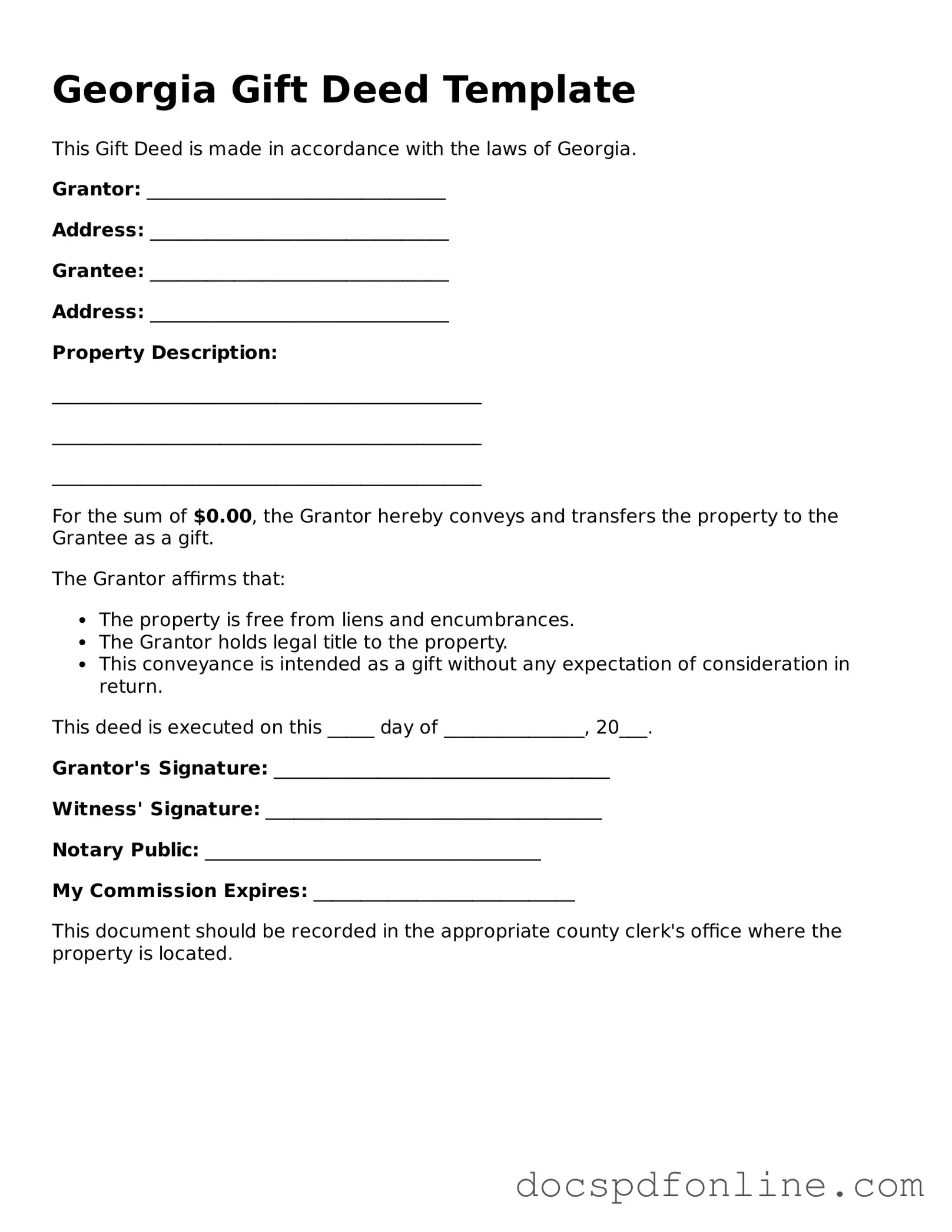Legal Gift Deed Template for Georgia
A Georgia Gift Deed is a legal document that allows an individual to transfer property ownership to another person as a gift, without any exchange of money. This form is essential for ensuring that the transfer is recognized by the state and protects the rights of both the giver and the recipient. Understanding how to properly execute this deed can help prevent future disputes and clarify ownership.
Launch Editor Now

Legal Gift Deed Template for Georgia
Launch Editor Now
Save time — finish this form fast
Finish Gift Deed online — edit, save, download made easy.
Launch Editor Now
or
↓ PDF File
